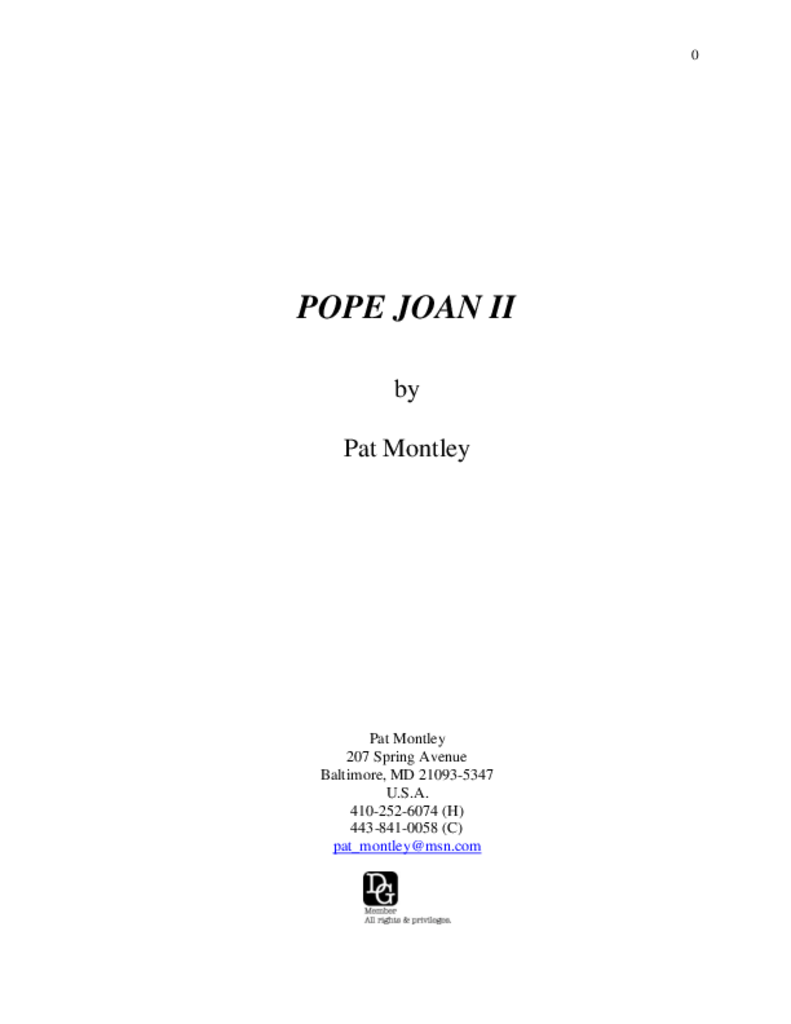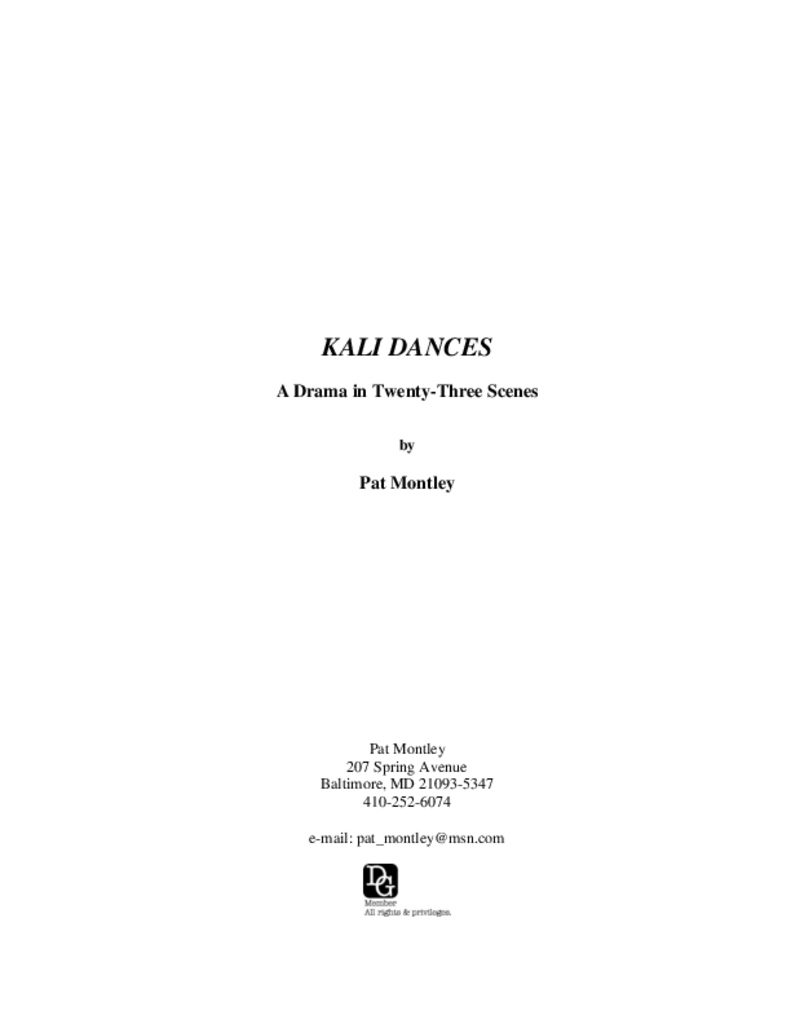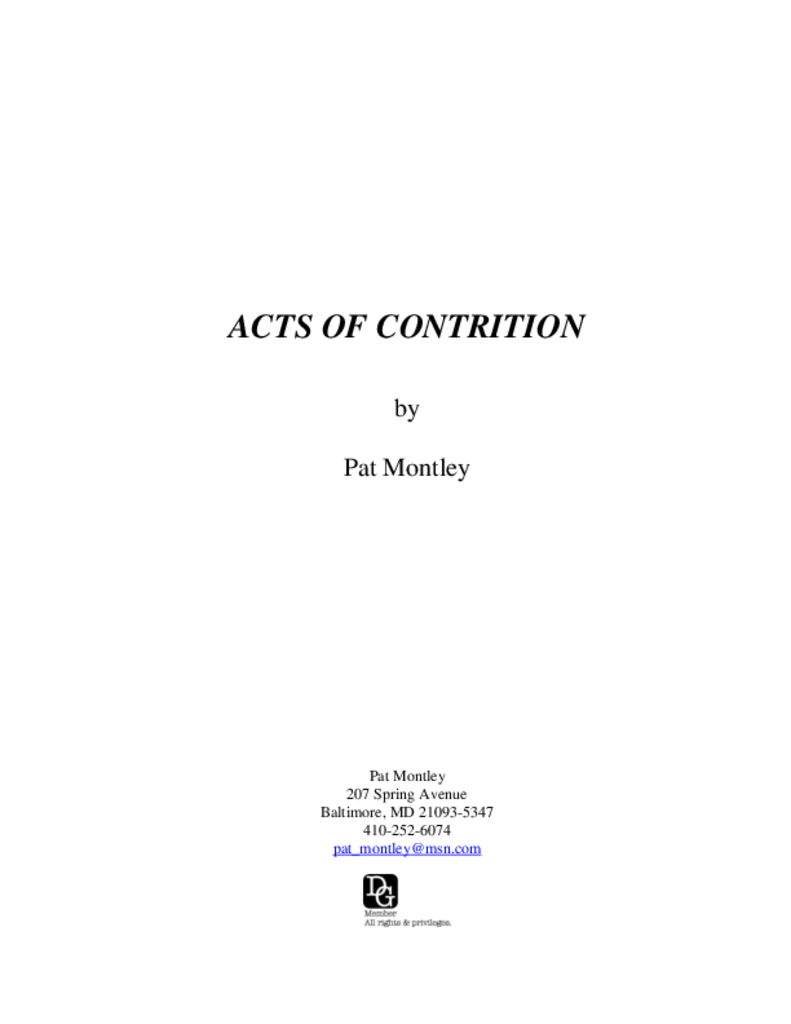POPE JOAN II is a RUBYS grant-winning project and an MSAC Individual Artist award project. It has had professional readings at Rep Stage in Columbia, MD and at the Shaw Society of London, UK, where it won the T.F. Evans Award. It was a semi-finalist in the Bridge Initiative, AZ, and enjoyed a reading at Cumberland Theatre, MD.
_________________________________Dramaturg's recommendation:
Pat has always been drawn to big ideas; her plays tend to frame the largest human questions that have always tempted dramatists. No fractured American families of four re-hashing the past in a living room for her. A Montley play tackles themes of faith, the afterlife, racism, gender and sexuality, mysticism, historical and political process, justice, education, the beleaguered good, and the persistence of evil.
And yet there is an irrevocably fractured family of three at the heart of PJII, Pat’s fanciful "What if?” comedy about the papacy in the contemporary world. What if an American nun with Buddhist tendencies and a mission for social justice finagled her way into the Vatican?
More important, what would she do when she got there? Aided by her spirit guides—Joan of Arc and Pope Joan I, the 9th century subversive—Sister Joan reaches the top by the end of Act One, but her policies are leading the Church to Schism from the conservative male cardinals headed by Henry Cardinal Gardiner, whose secret connection to Joan…but enough plot.
PJII is fanciful, theatrically vivid, a high-stakes look at the interwoven crises—political, environmental, religious—currently threatening to sink the globe for good. In this play, Pat is shaking Shaw, Paula Vogel, and Joe Orton in the same blender of satire and dialectic in order to come up with a fresh start for the world.
The reading was a huge success. Any worries that the play was “too Catholic” were swept aside by the laughs, the engaged silences, and the spontaneous bursts of applause throughout. All audiences have a stake in the future of the planet. Pat Montley’s PJII is a hilarious reminder (and a wake‐up call for those who need it) that when the going gets tough, no question, put a woman in charge.
James Magruder






